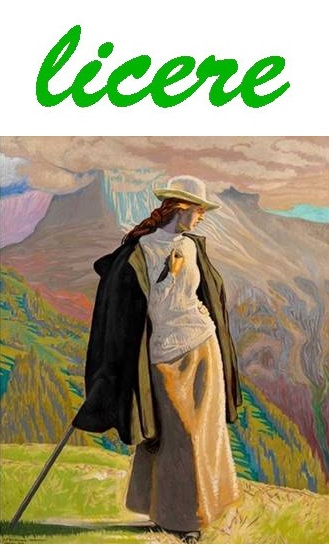Rio 2016 Olympic Games and the Social Impacts of Megaevents
A Qualitative Study
DOI:
https://doi.org/10.35699/1981-3171.2017.19902Keywords:
Sports, Public Policies, Leisure ActivitiesAbstract
The objective of this work is to analyze the expected positive and negative impacts of the 2016 Olympic Games from the perspective of public policy managers of sports and leisure within Brazil. Previous research demonstrates that sports megaevents generate both positive and negative impacts for every host country and it is essential that the host nations use research to base the construction of their public policies within sports and leisure in order to minimize the negative aspects and amplify the positive ones. For this study, field and bibliographic was conducted. The field research was conducted via semistructured interviews with public policy managers of sports and leisure. Our findings indicated that in order to be effective, there needs to be adequate management and public policies that enable the population to practice sports and it can minimize the negative social impacts of 2016 Olympic Games.
References
BOB, U.; SWART, K.; SMIT, J. Editorial. Alternation, v.17, n.2, p.1-7, 2010.
_____; SWART, K. Social events and social legacies. Alternation, v.17, n. 2, p.72-95, 2010.
BRAZIL. Brazil: meeting point of worldwide sport. Retrieved from: http://www.confef.org.br/extra/revistaef/arquivos/2011/N39_MAR%C3%87O/02_BRASIL_PONTO_DE_ENCONTRO.pdf . Acessed on: Oct. 22, 2015.
CHAIN, D.; SWART, K. Residents’ perceptions of the 2010 FIFA World Cup: A case study of a suburb in Cape Town, South Africa. Alternation, v. 17, n.2, p. 146-172, 2010.
CHAPPELET, J.; JUNOD, T. A tale of 3 Olympic cities: What can Turin learn from the Olympic legacy of other Alpine cities? In: TORRES, D. (Org.): Major Sport Events as opportunity for development. Valencia: Valencia Summit Proceedings. 2006.
CORNELISSEN, S.; MAENNING, W. On the political economy of ‘feel-good’ effects at sport mega-events: Experiences from FIFA Germany 2006 and prospects for South Africa 2010. Alternation, v.17, n.2, p.96-120, 2010.
CURI, M. The dispute for the legacy of sports megaevents in Brazil. Horizontes Antropológicos, Porto Alegre, ano 19, n. 40, p. 65-88, 2013.
GETZ, D. Event management and event tourism. New York: Cognisant Communication Corporation, 1997.
GRATTON, C.; SHIBLI, S.; COLEMAN, R. The economic impact of major sports events: A review of ten events in the UK. In: HORNE, J.; MANZREITER, W. (Org.). Sports mega-events: Social scientific analyses of a global phenomenon. Oxford: Blackwell Publishing, 2006.
JUNOD, T. Sports events as tools of public policies: Is it the right event for the right region? In: TORRES, D. (Org.). Major sports events as opportunity for development. Valencia: Valencia Summit Proceedings, 2006.
KASIMATI, E. Economic aspects and the summer olympics: a review of related research. Int. J. Tourism Res., v.5, p.433-444, 2003.
KILGORE, A. For Olympic athletes in Rio, a lack of buzz over Zika concerns. Washington Post. Retrieved from: <https://www.washingtonpost.com/sports/olympics/for-olympic-athletes-in-rio-a-lack-of-buzz-over-zika-concerns/2016/08/03/92d355ee-59a0-11e6-831d-0324760ca856_story.html>. Acessed on: Aug 3, 2016.
KIRKUP, N.; MAJOR, B. Doctoral foundation paper: The reliability of economic impact studies of the Olympic Games: A post-games study of Sydney 2000 and considerations for London 2010. Journal of sport and tourism, v.11. n.3, p. 275-296, 2007.
LI, S.; BLAKE. A.; THOMAS, R. Modeling the economic impact of sports events: The case of the Beijing Olympics. Economic Modeling, v. 30, p. 235-244, 2013.
LINCOLN, Y.S.; GUBA, E.G. Naturalistic inquiry. Beverly Hills, CA: Sage Publications. 1985.
MALFAS, M.; THEODROAKI, E.; HOULIHAN, B. Impacts of the Olympic Games as mega-events. Proceedings of the Institution of Civil Engineers – Municipal Engineer, v. 157, n. 3, p.209-220, 2004.
MATHESON, V. Mega-events: The effect of the world’s biggest sporting events on local, regional, and national economics. Economic Working Papers, v. 68, 2006.
MARCELLINO, N. C. Sports megaevents legacy. Campinas, SP: Papirus, 2013.
MATHESON, V.; BAADE, R. Mega-sporting events in developing nations: Playing the way to prosperity? South African Journal of Economics, v.72, n. 5, p. 1084-1095, 2004.
MCKEENNA, F.; BOB, U. Business perceptions of the 2010 FIFA World Cup and related infrastructural development: A case study of the Moses Mabhida Stadium and the Durban beachfront developments. Alternation, v.17, n. 2, p. 200-224, 2010.
MINAYO, M.C.S. (Org.). Social research: theory, methods and creativity. Petrópolis: Vozes, p. 9-29, 1994.
MIAGUSKO, E. Before the Cup, After the Pan: Rio de Janeiro in the era of sports megaevents. Civitas, Porto Alegre, v.12, n.2, p. 395-408. 2012.
PALAZZO, C. Rio Olympics: Which athletes have withdrawn over Zika fears? The Telegraph. Retrieved from: <http://www.telegraph.co.uk/sport/0/rio-olympics-which-athletes-have-withdrawn-over-zika-fears/>. Acessed on: Aug 30, 2016.
PREUSS, H. FIFA World Cup 2006 and its legacy on tourism. Trends and issues in global tourism. Berlin: Springer, 2007.
SEVERINO, A. J. Methodology of scientific work. 23. ed. São Paulo: Cortez, 2007.
SILVA, M. R. da; PIRES, G. De L. From the 2007 Pan in Rio to the 2014 World Cup in Brasil. What Brazil? And to which Brazil?. Motrivivência, v. 18, n.27, p.09-17, dez. 2006.
SILVA, M. R. da; PIRES, G. De L; MELO, M de P. The world of work, sports megaevents and the structural crisis of capital. Motrivivência, v. 23, n. 36, p. 07-25, jun. 2011
SWART, K. A curriculum design for sport tourism studies in South Africa. Unpublished doctoral thesis, Illinois State University, United States of America, 2001.
TRIVIÑOS, A. N. S. Introduction to the qualitative research in social sciences: the qualitative research in education. São Paulo: Atlas, 1987.
WALKER, M.; HEERE, B.; THAPA, B.; GELDENHUYS, S.; COETZEE, W. The power of sport to unite a nation: The social value of the 2010 South African World Cup. European Sport Management Quarterly, v.13, n. 4, p. 450-471, 2013.
WEED, M. & BULL, C. Sports tourism: Participants, policy, and providers. Oxford: Elsevier/Butterworth, 2004.

